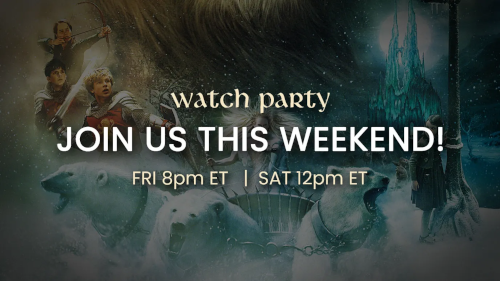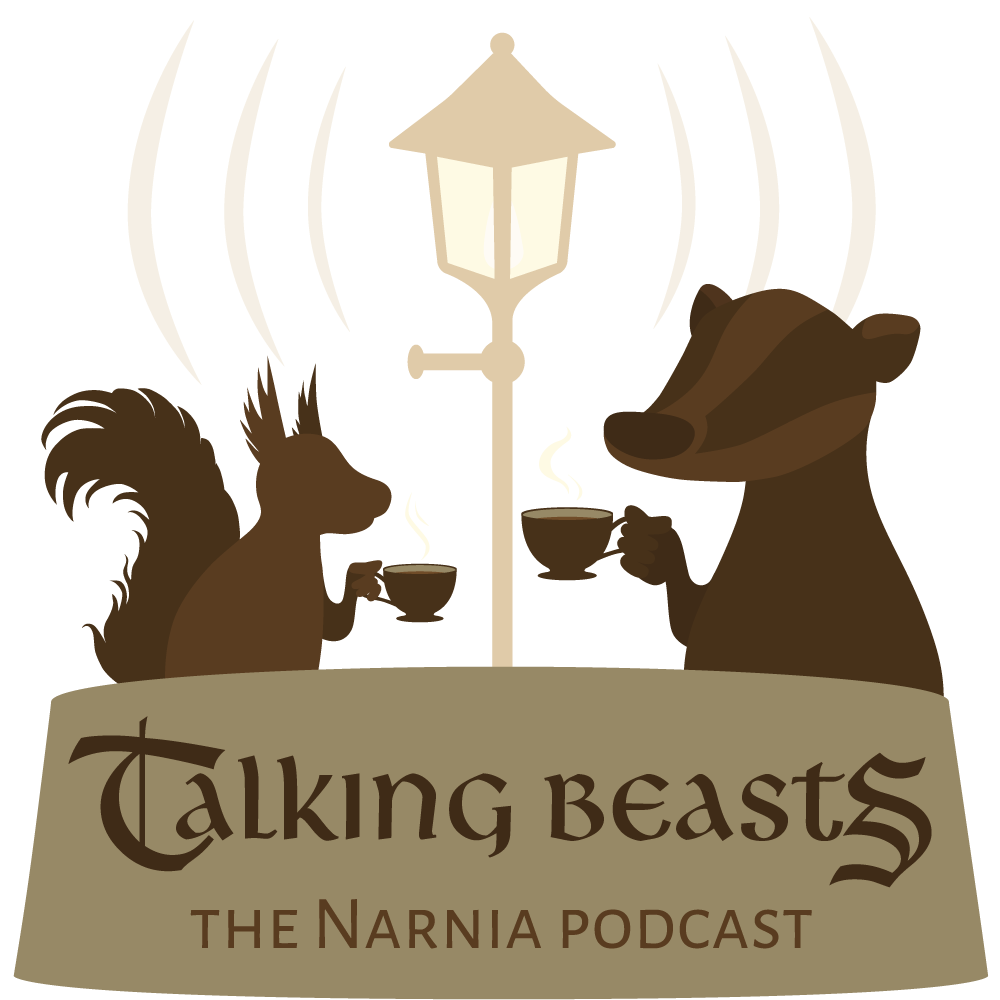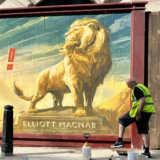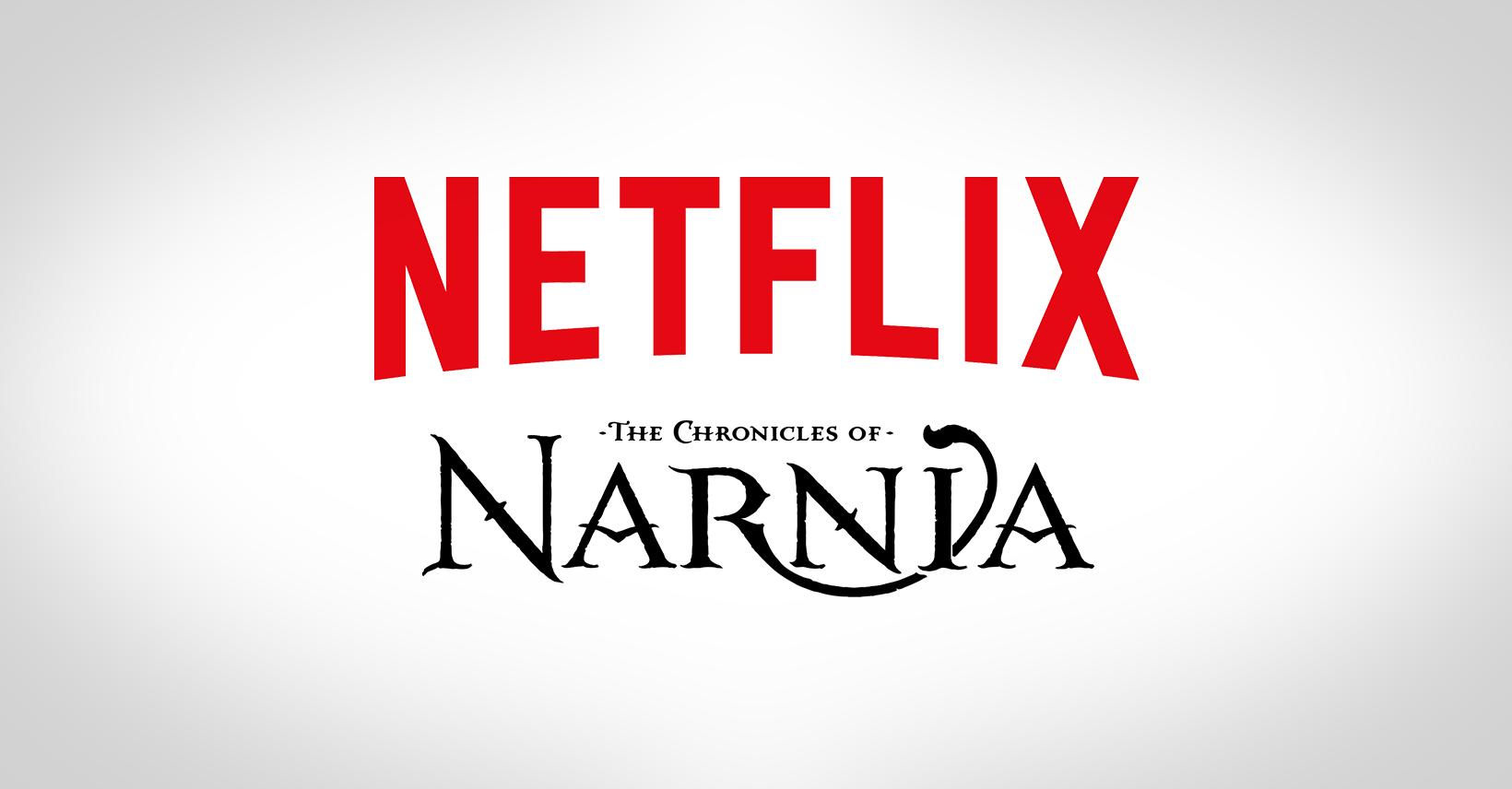By Kevin Kinghorn
Exclusive NarniaWeb.com excerpt from The Chronicles of Narnia and Philosophy
One of the most fascinating scenes in the Chronicles of Narnia features an incident that is truly puzzling. The scene takes place in The Magician’s Nephew. Four lucky humans (Digory, Polly, Uncle Andrew, and Frank the Cabby) and one very unhappy Witch (Jadis) watch as Aslan sings the new world of Narnia into existence. When the newly-created Talking Animals begin to speak, the human witnesses are amazed to find that they can understand them. Everyone, that is, except Uncle Andrew. All he can hear is barkings, howlings, and the like (MN, Ch. 10, p. 75). But why? Why wasn’t Uncle Andrew able to understand like everyone else?
This is the sort of question asked by virtue epistemologists. And as we shall see, virtue epistemology can shed a great deal of light on the puzzle before us. But before looking at the insights that virtue epistemology can bring us, let’s get clear on what virtue epistemology is.
Epistemology is a big word that simply refers to the branch of philosophy concerned with the study of knowledge and belief. Epistemologists seek to answer fundamental questions like: “What is knowledge?” “How do people come to know things?” “Can we really know anything?” “When is a belief justified?” “Are any beliefs 100% certain?” and “Is the hoky poky really what it’s all about?”
One hot topic among epistemologists centers on the distinction between believing something to be true and knowing that it is true. Clearly, I can’t know something unless it’s true. Anyone who says, “I know the Eiffel Tower is in London,” is talking nonsense. At the same time, however, not all true beliefs constitute knowledge. After all, a six-year-old, on hearing that C. S. Lewis lived his adult life in England, may form the true belief that Lewis lived in Oxford. But she may do so because Oxford is the only city in England she’s ever heard of, and she naïvely thinks that all people from England live in Oxford. Surely in this case the child doesn’t know that Lewis lived in Oxford; she just made a lucky guess.
Knowledge, therefore, requires something more than just true belief. The person must be justified in holding the belief. And what is justification exactly? Philosophers are divided on this question. Some argue that the person holding the belief must herself understand that her belief is based on the solid evidence. Others argue that one’s belief need only be formed through a process that reliably produces true beliefs, regardless of whether the person understands this process. Such traditional approaches to the issue of justification share what we might call an outward-inward approach. These approaches begin by explaining what counts as a good way of acquiring beliefs. And they conclude that if a particular belief has been acquired in this way, then the person holding the belief holds it justifiably.
Virtue epistemology is a recent theory of knowing that seeks to reverse the traditional assumptions about how we determine whether a person is justified in his or her beliefs. In 1980 the philosopher Ernest Sosa suggested that we should define justification in terms of intellectual virtues. Intellectual virtues are kinds of inward excellences, such as the ability to reason skillfully or to perceive truth. Virtue epistemologists, following Sosa, argue that we should define justification in terms of such virtues. So, suppose we ask whether a person is justified in holding a belief in a particular situation. The virtue epistemologist takes an inward-outward approach and answers that, if the belief resulted from an appropriate intellectual virtue, then the person justifiably formed that belief.
The general strategy of virtue epistemology is to analyze a person’s beliefs in terms of the intellectual virtues the believer possesses ,or lacks. By employing this strategy, we will find that a great deal is revealed about why Uncle Andrew failed to form true beliefs about the Narnia animals.
In asking whether Uncle Andrew possessed the intellectual virtues needed to form justified beliefs, we first need to identify what these virtues are. Lorraine Code, one of the first philosophers to respond to Sosa’s virtue epistemology, argues that intellectual virtues should be understood in terms of one’s epistemic responsibilities. Whether a person meets her epistemic responsibilities will be “a matter of orientation toward the world and toward oneself as a knowledge-seeker in the world.” More specifically, Code remarks, “[i]ntellectually virtuous persons value knowing and understanding how things really are. . . . They resist the temptation to live in fantasy or in a world of dream or illusion, considering it better to know, despite the tempting comfort and complacency a life of fantasy or illusion can offer.”
From Code’s general comments on epistemic responsibility, it’s possible to identify at least four central virtues of a responsible seeker of knowledge. Such a person:
(1) will value truth for its own sake.
(2) will not believe things simply because she wants them to be true.
(3) will not allow fears to dictate what she believes.
(4) will recognize her own limitations as a seeker of knowledge.
Let’s now examine whether Uncle Andrew possessed or lacked these four intellectual virtues. By the time we’re finished, it will be clear why Uncle Andrew couldn’t hear the Narnia animals talk.
Did Uncle Andrew Value Truth For Its Own Sake?
Code remarks that one characteristic of intellectually virtuous people is that they embrace knowledge as “good in itself, not just instrumentally good.” Her point is that virtuous seekers of truth will not seek to understand things merely as a means to accomplish further goals. Rather, they will value an accurate understanding of the world as an end in itself.
Importantly, a search for truth is not the same thing as the attempt to ensure that one never holds any false beliefs. Some philosophers have made this mistake. For example, the nineteenth-century philosopher W. K. Clifford, in a famous essay titled “The Ethics of Belief,” declares that “it is wrong always, everywhere and for everyone to believe anything upon insufficient evidence.” The misguided attempt to avoid at all costs holding any false beliefs was the downfall of the renegade dwarfs in The Last Battle. The dwarfs had been fooled into thinking that a donkey dressed up in a lion suit was actually Aslan. In time, the dwarfs discover the trickery and vow never to be taken in by anyone again. When King Tirian later appeals to them to join Aslan’s forces, they reply: “You must think we’re blooming soft in the head, that you must. . . . We’ve been taken in once and now you expect us to be taken in again the next minute. We’ve no more use for stories about Aslan, see!” Tirian explains that he’s talking about the real Aslan. But the dwarfs simply respond, “Where’s he? Who’s he? Show him to us!” (LB, Ch. 7, p. 707)
In demanding absolute proof, the dwarfs are not seeking to ensure that they have the facts about Aslan. Rather, their ultimate goal is to make sure they aren’t fooled again. This becomes clear when they eventually do come face to face with Aslan, who prepares a great feast for them. But the dwarfs are so closed off to the possibility that Aslan is actually before them that they don’t recognize him or the goodness of his gifts. Aslan explains that the dwarfs “have chosen cunning instead of belief” (LB, Ch. 13, p. 748).
As anyone who has channel-surfed through late-night infomercials knows, sometimes people develop false beliefs by being too naïve. Yet, it’s equally true that a person can fail to acquire true beliefs by being too cynical. The dwarfs’ problem is that they don’t value truth for its own sake. Instead, they seek to understand the world around them only so far as this is consistent with their ultimate goal of never holding false beliefs.
Uncle Andrew also seems to have an overarching commitment to avoid naïve beliefs at any cost. When he first hears the roar of Aslan at the creation of Narnia, he recognizes that the sound is indeed a song. But he tells himself that the source of the noise is “only” a lion, remarking for his own benefit, “Who ever heard of a lion singing?” (MN, Ch. 10, p. 75) Lewis comments that Uncle Andrew “tried to make himself believe that he could hear nothing but roaring, . . . [and] the trouble about trying to make yourself stupider than you really are is that you very often succeed. Uncle Andrew did. He soon did hear nothing but roaring in Aslan’s song.” When at last Aslan spoke and said, “Narnia, awake!” we find that Uncle Andrew “didn’t hear any words: he heard only a snarl” (MN, Ch. 10, p. 75).
One reason why Uncle Andrew was blind to things that were perfectly obvious to his companions is that he was “dreadfully practical” (MN, Ch. 10, p. 75). When Uncle Andrew witnesses Narnia’s creation, he has no interest in understanding what he’s seeing. Instead, he continually seeks a way to leave the place. The only time his interest is piqued is when he considers the financial profits he might reap if he could exploit the miraculous fecundity of Narnia. His only interest in understanding Narnia is purely instrumental.
Contrast Uncle Andrew’s attitude with that of Frank, the humble, good-natured Cabby. The Cabby is in awe of what he sees. As Uncle Andrew chatters away about his financial plans and about his dislike for Narnia, the Cabby finally tells him at one point: “Oh stow it, Guv’nor, do stow it. Watchin’ and listenin’s the thing at present; not talking” (MN, Ch. 9, p. 65). The Cabby is embracing the beauty and inherent worth of what he is witnessing, and he’s seeking a better understanding of Narnia simply because it’s worth understanding. Uncle Andrew’s only interest in Narnia concerns the money he might make if he could find a way to tap its treasures. Because he doesn’t value for its own sake the truth about Narnia, his concern to avoid childish beliefs overwhelms his concern for the truth.
Was Uncle Andrew Guilty of Wishful Thinking?
To quote Lorraine Code again, the intellectually virtuous person will “resist the temptation to live in fantasy or in a world of dream or illusion.” Such a person will not believe things simply because she wants them to be true.
It’s not difficult to see from everyday examples that people’s desires often influence what they believe. Think, for instance, of a rabid sports fan’s beliefs about a referee’s performance during a hotly contested game, or of an overly protective parent’s beliefs about whether her child’s teachers are treating her child fairly.
The Chronicles of Narnia contain some interesting examples of how people’s desires can affect what they believe. In The Lion, the Witch and the Wardrobe, Lucy tells Edmund what she has learned about the White Witch, who calls herself the Queen of Narnia. Edmund realizes this is the same person who had given him Turkish Delight and had promised to give him more if he returned to Narnia with his siblings. Lewis tells us that Edmund “wanted to taste that Turkish Delight again more than he wanted anything else” (LWW, Ch. 4, p. 128). So Edmund challenges Lucy’s version of reality. “Who told you all that stuff about the White Witch?” he asks. Lucy explains that it was Mr. Tumnus, the Faun. Edmund tries to act as though he’s somehow knowledgeable on the subject and declares, “You can’t always believe what Fauns say.” Lucy naturally asks, “Who said so?” Edmund of course has no real evidence for his assertion. He simply wants it to be true. And so he can only offer the absurd response: “Everyone knows it. Ask anybody you like” (LWW, Ch. 4, p. 128).
When Edmund later meets up with the Witch, she reneges on her promise to give him more Turkish Delight and treats him harshly. It becomes obvious to Edmund that his desire for Turkish Delight won’t be fulfilled even if the Witch remains in power. With this realization, he no longer has the incentive to try to convince himself and others that she’s really not so bad. We read of Edmund, “All the things he had said to make himself believe that she was good and kind and that her side was really the right side sounded to him silly now” (LWW, Ch. 4, p. 162). In short, Edmund’s belief in the Queen’s right to rule Narnia was sustained by a strong desire that she be proved the rightful ruler. Once the desire faded, so did Edmund’s belief.
Did Uncle Andrew share Edmund’s tendency to allow his desires to rule his beliefs? Consider Uncle Andrew’s own response to the Queen in The Magician’s Nephew. When the Queen first meets Uncle Andrew, who fancies himself a magician, she grabs him by the hair and says, “I see what you are. You are a little, peddling Magician who works by rules and books. There is no real Magic in your blood and heart” (MN, Ch. 6, p. 46). She then barks orders at Uncle Andrew and warns him that she’ll cast an evil spell on him at the first sign of his disobedience.
Uncle Andrew retreats to his room, takes a couple of stiff drinks, and puts on his best outfit to impress the Queen. All this makes him feel better about himself. “Andrew, my boy,” he says to himself while looking in the mirror, “you’re a devilish well-preserved fellow for your age. A distinguished-looking man, sir.” Lewis comments: “You see, the foolish old man was actually beginning to imagine the Witch would fall in love with him. The two drinks probably had something to do with it, and so had his best clothes. But he was, in any case, as vain as a peacock” (MN, Ch. 6, p. 49).
To any reasonable onlooker, the Queen’s first meeting with Uncle Andrew provided no evidence whatsoever that she might actually like him. But Uncle Andrew’s hope that the Queen would admire him clouds his judgment.
As was the case with Edmund, when Uncle Andrew’s desires lose their grip on him, his beliefs about the Queen become more realistic. As the Queen begins to address Uncle Andrew as “slave” and “dog,” his desire to be admired by the Queen is replaced by fear of her. When this happens, we read of Uncle Andrew that “all the silly thoughts he had had while looking at himself in the glass [mirror] were oozing out of him” (MN, Ch. 7, p. 5).
Uncle Andrew shows in his dealings with the Queen that he does not possess the second intellectual virtue we are considering. He allows his desires unduly to affect his beliefs. He is the kind of person who does not see reality in a clear light. Rather, he sees what he wants to see.
Returning to the scene of Narnia’s creation, Uncle Andrew’s overriding desire is simply to leave and return home safely. Because he has no real desire to see any of Narnia’s wonders, it’s not surprising that can’t hear the animals speak. As the Greek orator Demosthenes observed, “what a man wishes, he generally believes to be true.”
Uncle Andrew’s Fear Factor
Our fears can influence our beliefs just as our desires can. Following the work of Sigmund Freud, it has become popular to talk of the possibility of repressing one’s beliefs because they represent situations too frightful to entertain. Interestingly, fears can also cause a person to believe in something that is feared. For instance, a child’s fear of monsters might be so intense that she comes to believe that there really are monsters hiding in her closet. Thus, fear can lead one both away from believing what one fears, and towards it. Either way, an intellectually virtuous person will not allow fears unduly to influence what she believes.
There are examples in the Chronicles where this third intellectual virtue is glaringly absent. In Prince Caspian, the young Caspian is told by his tutor, Doctor Cornelius, that the old Kings and Queens of Narnia lived in Cair Paravel. “Ugh!” replies Caspian with a shudder. “Do you mean in the Black Woods? Where all the—the—you know, the ghosts live?” (PC, Ch. 4, p. 340). Doctor Cornelius explains that the stories about the woods are pure myths perpetuated by the Telmarines, who now rule Narnia. “There are no ghosts there,” he says, explaining that because the Telmarines “quarreled with the trees, they are afraid of the woods. And because they are afraid of the woods they imagine that they are full of ghosts” (PC, Ch. 4, p. 340).
What about Uncle Andrew? Lewis remarks that Uncle Andrew “had never liked animals at the best of times, being usually rather afraid of them.” He then adds, “And of course doing cruel experiments on animals had made him hate and fear them far more” (MN, Ch. 10, p. 76). Because of this fear, Uncle Andrew runs in terror when the newly-created Narnia animals run after him in excitement and curiosity. When they catch up to him, they open their mouths to pant and catch their breath. Uncle Andrew thinks they’re opening their mouths to eat him. A Bulldog asks him innocently enough, “Are you animal, vegetable, or mineral?” All Uncle Andrew hears is “Gr-r-r-arrh-ow!” (MN, Ch. 10, p. 76)
Not once do we read of Uncle Andrew pausing to reflect on whether his fears of the animals are well-founded. Not even when he sees the other humans interacting peacefully with the animals does he question his own assumptions. Instead, he says to himself, “The fools! Now those brutes will eat the rings along with the children and I’ll never be able to get home again” (MN, Ch. 10, p. 76). A moment of calm reflection would allow Uncle Andrew to see the folly of his own distrustful attitude toward the animals. But his assumptions about the animals are so driven by his fears that they are not open to critical scrutiny.
Does Uncle Andrew Recognize His Own Limitations?
To quote Lorraine Code again, intellectually virtuous character is a matter of proper orientation not only toward the world, but also “toward oneself as a knowledge-seeker in the world.” As Socrates notes, the beginning of wisdom lies in realizing how little one knows.
A scene in The Voyage of the” Dawn Treader” nicely illustrates how self-knowledge can affect one’s beliefs. The passengers on the Dawn Treader, led by Prince Caspian and the Pevensie siblings, land the ship on an island. While the ship is being repaired, the spoiled brat Eustace sneaks away to avoid doing any work. He falls asleep and, upon awakening, becomes frantic that the others might leave him behind. Lewis tells us that “if he had understood Caspian and the Pevensies at all he would have known, of course, that there was not the least chance of their doing any such thing. But he had persuaded himself that they were all fiends in human form” (VDT, Ch. 5, p. 460).
There is a proverb that says: “As a man thinketh, so is he.” When we observe other people’s actions, it is only natural for us to assume that their reasons for acting are the same as ours would be if we were acting as they are. Philosophers refer to this tendency as the “Principle of Charity.” Eustace believes that the others might leave him because, frankly, this is the kind of thing he would do.
Eustace has both a change of heart and a change of hide after becoming lost on the island. He changes into a dragon and undergoes a series of trying circumstances that bring him to a state of loneliness and despair. A time of soul-searching helps him realize that he hadn’t been “such a nice person as he had always supposed” (VDT, Ch. 6, p. 466). Indeed, we read that “Eustace realized more and more that since the first day he came on board he had been an unmitigated nuisance” (VDT, Ch. 7, p. 472). With this self-discovery comes a decision to make a fresh start. And with a new commitment to others, he sees others in a different light: “He realized now that Caspian would never have sailed away and left him” (VDT, Ch. 6, p. 467).
Unfortunately, Uncle Andrew never comes to such a point of self-discovery. We noted earlier that he has the clear chance to reevaluate his fear-laden assumptions about the motivation of the Narnia animals when he sees them making friends with Digory, Polly and the Cabby. But Uncle Andrew can’t see that Digory and the others actually are making friends with the animals. All Uncle Andrew can see as he observes them is the selfish attempt to show they don’t care about him. He exclaims, “What a selfish little boy that Digory is! And the others are just as bad. If they want to throw away their own lives, that’s their business. But what about me? They don’t seem to think of that. No one thinks of me” (MN, Ch. 10, p. 75).
Uncle Andrew is the one, of course, who is selfish to the bone. And so he naturally interprets the actions of others in line with his own self-centered commitments. If Uncle Andrew had at least possessed some awareness of the way his personal character was influencing his perceptions, he might have come to a more accurate understanding of his surroundings. But Uncle Andrew lacked the fourth intellectual virtue of self-knowledge. As a result he remained mired in his skewed perspective of the world.
Was Blind, But Now I See
In describing how the creation of Narnia didn’t make the same impression on Uncle Andrew as it did on Digory, Polly and the Cabby, Lewis makes a comment that anticipates much of our discussion. Lewis states that “what you see and hear depends a good deal on where you are standing: it also depends on what sort of person you are” (MN, Ch. 10, p. 76). Our discussion of virtue epistemology can perhaps be viewed as giving philosophical precision to Lewis’s insight.
At the same time, Lewis’s own well-known religious commitments leave little doubt that his interests in epistemology didn’t lie merely with general intellectual duties people can have. He was also concerned with specifically spiritual problems that prevent people from seeing the truth about God. We can observe in some of our previous examples that Lewis’s ultimate concern seems to be this matter of spiritual blindness. For example, it’s not just that Edmund in The Lion, the Witch and the Wardrobe is mistaken in thinking that the Queen of Narnia is the rightful ruler of Narnia. More importantly, he is blinded to the fact that opposition to Aslan, the creator and sustainer of Narnia, cannot ultimately prevail. Similarly, it’s not just that the dwarfs in The Last Battle can’t recognize that the feast Aslan prepares for them actually consists in choice food and wine instead of rotten turnips and dirty water. It’s also that they can’t recognize the more profound truth that Aslan is seeking their well being.
A thought-provoking reference to spiritual blindness occurs in Prince Caspian, where Lewis offers an account of the travels of the Pevensie siblings and the dwarf Trumpkin as they trek through Narnia to come to the aid of Caspian. The group is unsure how to navigate a gorge they need to cross. Lucy suddenly spots Aslan in the distance offering them direction. But her companions don’t believe Lucy’s story (with the exception of Edmund, who reminds himself that nobody believed Lucy’s accurate testimony when, in a previous adventure, she made claims about a magic wardrobe opening up into a land called Narnia.) So, after a vote, they decide to follow a route different from the one Lucy advises. After a time, they become hopelessly lost (PC, Ch. 10, pp. 375-6).
Lucy again spots Aslan, and this time she is determined to follow him whether any of the others do or not. The others do come along, for they have no other real option. Aslan appears repeatedly in the distance to guide them. Lucy leads the others, as she is still the only one who can see Aslan. Gradually, the others in the group one by one also come to see Aslan. Interestingly, the order in which they come to see him corresponds exactly with the degree of skepticism they originally expressed about Lucy’s testimony. Edmund had originally voted to follow Lucy. And it is he who is the first of the others to see Aslan. Next, Peter recognizes the shape of Aslan in the distance. Then Susan, who was originally the most condescending of the children towards Lucy, comes to see Aslan. Finally, the dwarf Trumpkin, who had refused earlier to consider the possibility that Aslan even existed, is forced to come to grips with the reality of Aslan when the Lion confronts him face to face.
The degree to which the members of the group are initially skeptical of Lucy’s testimony seems to determine the extent to which they are later able to recognize the truth that Aslan is present with them. The religious implications here are obvious. As Lewis notes in a number of his writings, much of the evidence we have today for the central Christian claims about Jesus Christ comes in the form of testimony from the New Testament eyewitnesses and near-contemporaries. In this sense, the evidence for Christian truth rests on a kind of faith—specifically, a faith in the credibility of certain human testimony. Yet faith, Lewis believed, also produces its own authenticating evidence. Sin blinds, and faith opens our hearts and minds to God’s gracious presence in our world and in our lives.
We’ve looked at four intellectual virtues central to being a responsible seeker of knowledge: valuing truth for its own sake; refusing to believe something simply because one wants it to be true; not allowing fears to dictate what one believes; and recognizing one’s limitations as a seeker of truth. We’ve seen that Uncle Andrew utterly lacks these virtues. As a result, he, like the renegade dwarfs, lives in untruth and makes a prison of his own mind (LB, Ch. 13, p. 748).







